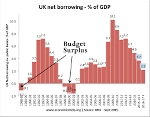Canal+ secures approval for $2.82bn MultiChoice takeover
 DSTV logo
DSTV logo
South Africa’s Competition Tribunal has given the green light to French broadcaster Canal+’s $2.82 billion acquisition of MultiChoice, removing the final major regulatory barrier and marking a significant shift in Africa’s pay-TV and media industry.
For Canal+, the future is African. As the company faces subscriber declines and regulatory headwinds in Europe—including the recent forced closure of its C8 channel in France—its parent company Vivendi is pivoting toward the continent's growing markets.
Africa already represents nearly a third of Canal+’s global subscribers.
Acquiring MultiChoice, the leading pay-TV provider in English-speaking Africa with 19.3 million subscribers, expands Canal+’s footprint across the continent and strengthens its ambition to reach 60 million global subscribers by 2028—half of them in Africa.
CEO Maxime Saada has described Africa as "the most exciting media opportunity in the world," underscoring the company’s long-term strategy to invest where demographic and economic trends are strongest.
The deal has not been without legal and political complications.
South African regulations cap foreign ownership of broadcast licence holders at 20% of voting rights.
To comply, Canal+ and MultiChoice will establish a new company, LicenceCo, to hold the broadcasting licence.
This entity will be majority-owned by South African investors, including the Black Economic Empowerment (BEE) vehicle Phuthuma Nathi.
The Competition Tribunal’s approval is contingent on this structure.
To reinforce local ownership and governance, prominent South African investors Sipho Maseko and Sonja de Bruyn have been brought on board.
There were also political concerns, particularly regarding the influence of Vincent Bolloré—Canal+’s influential shareholder known for his strong media presence in France and political entanglements.
However, industry analysts say those issues took a backseat to the deal’s economic rationale.
“Economic logic won out,” said Jean-Michel Huet of consultancy BearingPoint.
Initially, MultiChoice’s board resisted the acquisition. In early 2024, it rejected Canal+’s first bid of R105 per share, arguing it significantly undervalued the company.
But as financial pressures mounted—including the loss of four million subscribers in under two years, a 10% revenue decline, and a 40% drop in EBITDA—its negotiating position weakened.
Factors such as rolling power outages in Zambia and rampant inflation in Nigeria, where the Naira lost over half its value in a year, severely dented MultiChoice’s operations.
Eventually, the board agreed to a revised offer of R125 per share, valuing the company at $2.82 billion.
With this acquisition, Canal+ cements its dominance in Africa’s media market and sets the stage for intensified competition, content innovation, and platform expansion across the continent.
For MultiChoice, the deal offers much-needed capital, strategic direction, and the stability of being part of a global media powerhouse.
Source: Classfmonline.com/Cecil Mensah
Trending Business

Primary surplus rises to 11.1% of GDP, signalling economic stability - Ato Forson
15:13
Buffers needed to cushion us against fiscal and external shocks -Ato Forson
14:48
Ato Forson: We inherited a bleeding energy sector with annual shortfalls over $1.5bn
14:40
Energy Ministry dismisses reports of aviation fuel shortage, assures steady supply
14:30
TAGG President calls for port tariff standardisation ahead of Mid-year Budget Review
13:00
Canal+ secures approval for $2.82bn MultiChoice takeover
11:21
NPA holds second stakeholder consultation on draft consumer complaints guidelines for petroleum sector
10:17
Mid-year Budget Review: Okaikwei Central MP hints at key tax increases
04:06
Mid-year Budget Review: Fin. Min. makes presentation today with majority, minority divided over state of economy
04:55
Azumah Resources, E&P reaches agreement over Black Volta Gold mine dispute-Minister
14:04




